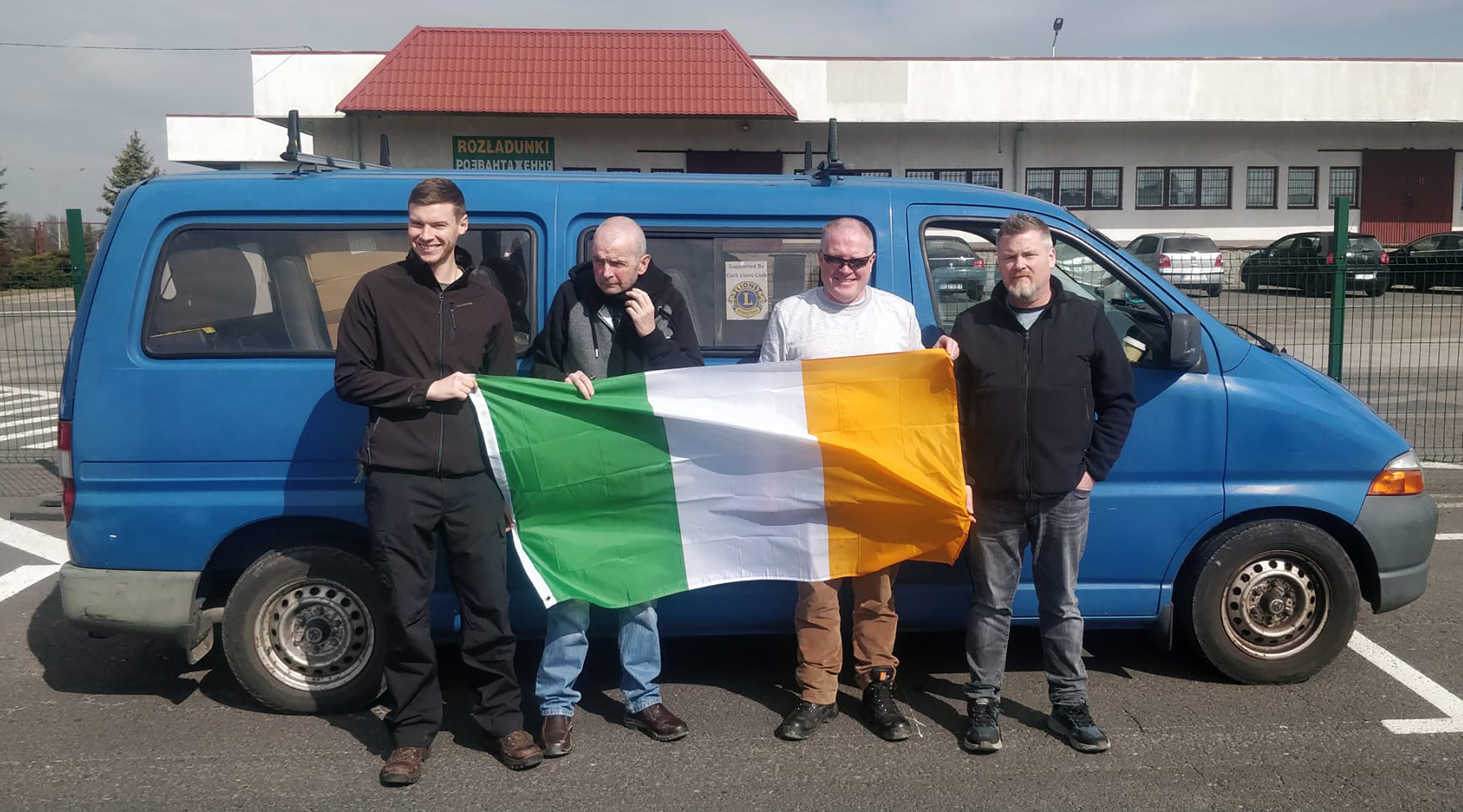Irishman with terminal cancer travels to Ukraine to deliver aid
Corkman Don O’Leary made the 2,500-kilometre journey to Shegyni on the Polish-Ukrainian border to bring urgent aid to those fleeing the war.

An Irishman living with terminal cancer has made his way from Co Cork to the Ukrainian border with a truck-load of aid.
64-year-old local man Don O’Leary, a well-known figure in Cork city, is suffering from terminal cancer.
But that did not stop him making the 2,500-kilometre journey to Shegyni on the Polish-Ukrainian border to bring urgent aid to those fleeing the war, after raising 24,000 euro from the local community.
Mr O’Leary is the director of the Cork Life Centre, which educates marginalised young people in the city, and says that he never had any doubts about making the journey, despite his diagnosis.
He said: “I can’t control cancer, but I can control what I do, where I go and who I want to be with.”
When a doctor told him that he had terminal lung cancer in February 2021, he was initially given eight to 12 months to live.
Despite this, he made it his mission to help Ukrainian refugees.
He revealed: “Everyone said, ‘Are you mad?’ The answer to that is probably yes.
“I love being able to do something that is relevant, important and supports community. That kind of thing does all of that.”
He is clear that Russian President Vladimir Putin is a “fascist”.
Mr O’Leary made the journey by van on March 22 with four other volunteers.
He said: “I was comfortable enough, because they made a bed and I could get some sleep along the way.”
During that time, he was in regular contact with the young people the Cork Life Centre works with.
I love being able to do something that is relevant, important and supports community. That kind of thing does all of that
He took questions from them while on the road and tried to communicate what he was witnessing.
One question, he says, stood out: “What was the difference between us going to Ukraine and the people coming out of Ukraine? That hit hard.”
“They left their house behind then. They may never go back,” he says.
“It strikes you. That’s your life – three suitcases.
“Women and kids. In every war, they come off worst.”
His young grandson had asked him the same question about why he felt the need to go.
“I wanted to support the small boys and girls,” he told him.
Having returned to Cork in recent days, he say he has a much better insight into what people in Ukraine need.
He says that essential items like bedsheets and generator are crucial.
The Irish Red Cross has been playing a key role in providing aid to Ukrainians and Mr O’Leary says he understands that some people might ask why the money raised couldn’t be handed to charity.
“There is something about communities giving to communities,” he says, stressing the importance of forging links between Cork and the contacts he made at the Ukrainian border.
He has also been forced to consider the difference reception Ukrainian refugees have received, compared to other people fleeing other conflicts.
He said: “I would have liked them to see the same thing done for Syrians, Afghans.
“What is the difference between the Syrians and the Ukrainians?”